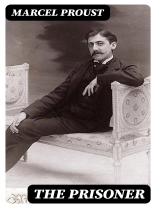In ‘The Prisoner, ‘ the fifth volume of Marcel Proust’s monumental work, ‘In Search of Lost Time, ‘ the author deftly explores themes of love, jealousy, and the complexities of human relationships. Written in Proust’s signature style, the narrative is rich in introspective observations and intricate psychological insights, allowing the reader to traverse the labyrinth of the protagonist’s mind. Proust’s exploration of time and memory reaches new depths as he delves into the effects of obsession and possessiveness, particularly in the relationship between Marcel and Albertine, revealing the intricate interplay between desire and despair in the pursuit of love. Marcel Proust, a French novelist and essayist, was deeply influenced by his own experiences with love and friendship, as well as his struggles with societal expectations. Born into a wealthy Parisian family, he often found himself at odds with the rigid structures of his class, which informed much of his writing. Proust’s experiences of longing and existential contemplation led him to create a narrative world that reflects the emotional depth and nuance of human connections, illustrating the blend of temporal fluidity and desire. ‘The Prisoner’ is a remarkable journey through the human psyche, beautifully capturing the inflections of passion and the pain of attachment. A must-read for anyone interested in the subtleties of relationships and the philosophies of memory, this book encourages readers to reflect on their own experiences, making it an essential addition to the canon of modern literature.
A propos de l’auteur
Valentin Louis Georges Eugène Marcel Proust, known as Marcel Proust (1871-1922), is esteemed as one of France’s most influential novelists of the twentieth century. His magnum opus, ‘À la recherche du temps perdu’ (‘In Search of Lost Time’), is a monumental seven-part novel, with ‘The Prisoner’ being its fifth volume. Born in Auteuil, the southwestern sector of Paris’s then-rustic 16th arrondissement, Proust grew up in a wealthy and cultured atmosphere, which later influenced his writing. Critically acclaimed for his introspective prose, rich detail, and explorative psychological narrative, Proust pioneered the style of involuntary memory—best captured by the famed ‘madeleine episode’ where the taste of a madeleine cake dipped in tea evokes an intense involuntary memory. ‘The Prisoner’, specifically, explores themes of obsessive love and the possessive nature of human relationships, while continuing the broader novel’s musings on time, memory, and identity. This exploration unfolds through the lens of the narrator’s relationship with Albertine, the titular ‘prisoner’. Proust’s work remains a cornerstone of literary modernism, and its influence pervades contemporary literature. Scholars and readers alike continue to dissect Proust’s intricate narrative structures and his exploration of the inner psyche, which shed light on the human condition and the passage of time. His elaborate sentences and nuanced descriptions make his body of work an enduring testament to his literary genius.












